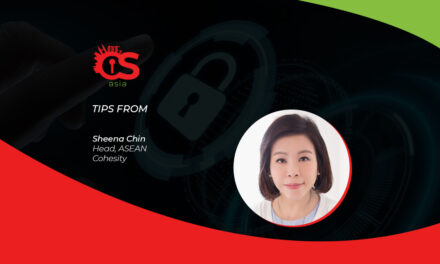Here are some tips to bear in mind when you are tempted by too-good-to-be-true online deals or strangers in social media.
In Singapore, the mainstream media has reported that 219 DBS bank customers have already fallen prey to banking scams and lost a cumulative US$334.4k to scammers in just the first weeks of 2024.
Scammers had impersonated banks or banking staff to convince or trick victims into providing their bank account login credentials.
Accordingly, DBS and the country’s police officials have reiterated that, since 2022, all banks have removed clickable links in emails or SMSes to retail customers.
Elsewhere, around £155k have been lost to bank scams in the same few early weeks of 2024. In Australia, there were 2,718 reports of scams involving bank accounts, with total losses of around A$4.3m in the first weeks of 2024.
Years ago, the standard advisory to the public was to remind everyone of the standard rules of online cyber hygiene. However, since the launch of generative AI chatbots, powerful deepfake tools and the massive surge in global digitalization, scammers have crafted more sophisticated and elaborate techniques to ensnare even cybersecurity-savvy victims.
So, here are some updated cyber hygiene tips that can help you stay safe in 2024, or at least until some unprecedented new AI-powered cybersecurity breach renders the world helpless…
Updated banking-safety tips
First, get acquainted with the most basic cyber hygiene best practices needed to keep your personal and banking credentials safe. (More tips are continually being added and updated on Cybersecasia.net)
Next, worldwide trends in banking scams have already led to the some or all of the following enhanced precautions and security measures, so make sure to subscribe to or activate such features if the banks and services you use are making them available:
- Activate biometric authentication on your mobile phone/smart devices for any access to your bank accounts and related services. This must be in addition to existing second-factor or multi-factor authentication mechanisms already offered by most financial institutions and apps.
- Open up fresh “petty cash” bank accounts specifically meant for risky online and ad hoc digital transactions. Keep the amount of cash deposited inside small, and top up the cash stored there only when necessary. Use this debit card account for your all or most of your casual online transactions, and make sure it is not linked to any of your other high-value bank accounts/cards in any way.
- If your bank offers an emergency self-service “kill switch” to suspend your bank accounts quickly, make sure you activate the feature and familiarize yourself with its usage.
- Some of the latest bank account security features include specifying a specific amount of a bank deposit to be put into a “money lock” that cannot be used for digital transfers even by scammers that have broken into your account. Another new safety feature is to enforce a “cooling-off period” in your account so that scammers who have gained access cannot quickly raise withdrawal limits or other key account settings.
- If your bank or financial service does not offer all of the above additional safety features, make sure you make your voice heard, and warn others about the need to demand due scam-protection diligence from the institutions.
- Never let your smartphone or mobile device out of your sight. Scammers lurking in public places have been known to “borrow” such devices on the pretext of needing to make an emergency call, but actually use the opportunity to quickly compromise the device for later access by remote. It may sound selfish and heartless, but being zealously over-protective of your smartphone — even to pitiful-looking children needing a phone “to call their parents” — can save you from months of misery and financial regret. You can definitely help these people in other ways (if they are genuine cases) for sure!
- Beware of the latest deepfaked news and purportedly “helpful” social media cybersecurity tips by unknown users (or even by influencers) about banking-scam incidents. Many have been found to contain dubious warnings, misguided advice, and perhaps well-meaning but ultimately erroneous suggestions. The worst videos are actually designed to plant false alarms in one direction so that gullible social media users are pushed in another direction where scammers will be waiting. Rule of thumb: take all social media safety tips with a pinch of salt, and never ever click on any links provided therein. Furthermore, do not mindlessly forward such “tips” to your social network out of good intentions.
- Make sure you update your mobile-banking apps through the proper verified download source. The latest versions should contain self-checking features that ascertain that your mobile device does not have dubious software (or spyware) already active in the background when it is launched. Again, if your bank/financial service has not implemented this feature, ask for it to be done, soonest possible!
- If all else fails, and you happen to be ensnared into an elaborate process where you receive a call from a stranger and receive all kinds of helpful reassurances about his/her legitimacy, give up the deal and report the suspect’s phone number to your local cybersecurity watchdog or police. Be especially careful not to download any apps or click any links provided by strangers in any subsequent SMS, email or follow-up communication.
- Finally, as generative AI becomes even more powerful and gets abused by cybercriminals and fraudsters, even the latest precautions by you and your bank may become by-passable. Therefore, keep yourself up to date with the latest cyber hygiene tips from trusted sources, spread them around, and be each other’s watchful eyes whenever possible.
Make sure everyone in your family and social network is aware of the latest banking-scam trends and precautions. When in doubt, they can easily check the news media for continual updates by the banks and government authorities. This way, people with the right cyber hygiene mindset can help others keep vigilant at all times.





















